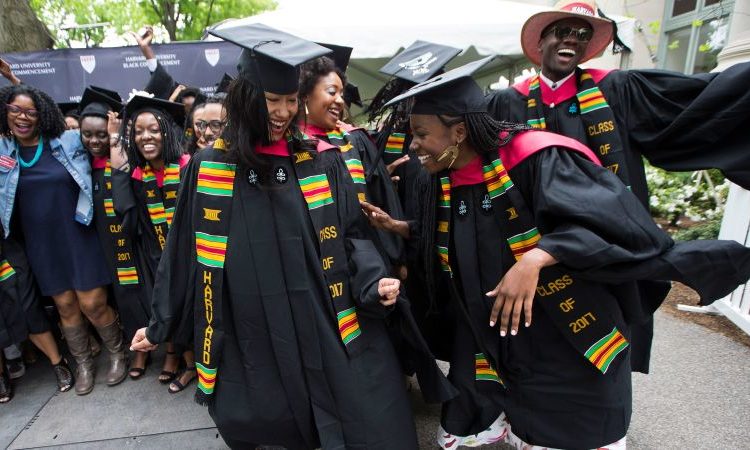Marginalized Students Fight to Preserve Affinity Graduations

About the People Mentioned
Elyse Martin-Smith
Elyse Martin-Smith is a Chinese-American writer and scholar based in Portland, Maine, known for her contributions to literary criticism, historical scholarship, and social commentary. A graduate of Smith College with a BA in French Studies and Comparative Literature, she has a diverse background that includes early modernist and book history scholarship, with particular interests in the French Revolution, Napoleonic Wars, and Romanticism[1][2]. Professionally, Martin-Smith has served as the associate editor for web content and social media at the American Historical Association (AHA) from 2018 to 2020, where she managed the AHA’s digital presence and edited website content[1]. Before that, she worked at the Folger Institute at the Folger Shakespeare Library, supporting advanced scholarly programming[1]. She also writes literary reviews for Publishers Weekly and has published essays, humor pieces, and interviews in outlets such as Slate, The Toast, Electric Literature, Perspectives on History, Smithsonian Magazine, and Tor.com[2][5]. Her essay “Please Let Women Be Villains” was recognized as a notable work in *The Best American Essays 2022* anthology[2]. In addition to her nonfiction work, Martin-Smith is preparing to publish her debut graphic novel, *Copy Cat*, illustrated by Sean Rubin, scheduled for release in winter 2026[2]. Currently, Elyse Martin-Smith is an undergraduate student at Harvard College, concentrating jointly in social studies and African American studies. She contributed to the exhibition *In Their Own Voices: Black Women’s Lives from the Archives*, which showcases historical materials related to Black women’s experiences and is on view through March 2024[3]. Her ongoing work reflects a commitment to exploring social justice, history, and representation. She maintains an active presence on social media platforms under the handle @champs_elyse[2].
About the Organizations Mentioned
Harvard University
## Overview Harvard University, located in Cambridge, Massachusetts, is one of the world’s most prestigious and influential institutions of higher education. Founded in 1636, it is the oldest university in the United States and a global leader in research, education, and innovation, with a particular impact on business and technology. ## What Harvard Does Harvard is a comprehensive university offering undergraduate, graduate, and professional education across a wide array of disciplines. Its core activities include degree-seeking education, continuing and executive education, and extensive sponsored research, both federal and non-federal[2]. The university’s mission-driven approach extends to philanthropy, with a significant portion of its operating revenue derived from endowment income and current-use gifts[2][3]. Harvard is also a major player in technology transfer and entrepreneurship, with strong ties to the Boston-area innovation ecosystem. ## Historical Background Harvard’s long history began as a colonial college established to train clergy. Over the centuries, it evolved into a modern research university, producing numerous Nobel laureates, heads of state, and business leaders. Its alumni and faculty have played pivotal roles in advancing science, technology, and global commerce. ## Key Achievements Harvard’s achievements are vast and varied. It is consistently ranked among the top universities globally, renowned for its rigorous academics, groundbreaking research, and influential alumni network. The university has pioneered major scientific discoveries, developed leading business and law schools, and fostered technology startups through its innovation labs and venture programs. Notably, beginning in the 2025-2026 academic year, Harvard College will be free for students from families with incomes below a certain threshold, significantly expanding access to its world-class education[4]. ## Current Status As of fiscal year 2025, Harvard’s net assets grew to $68.7 billion, despite a modest operating deficit of $113 million on $6.7 billion in operating revenue[2]. The university continues to rely heavily on philanthropy, with curren

















